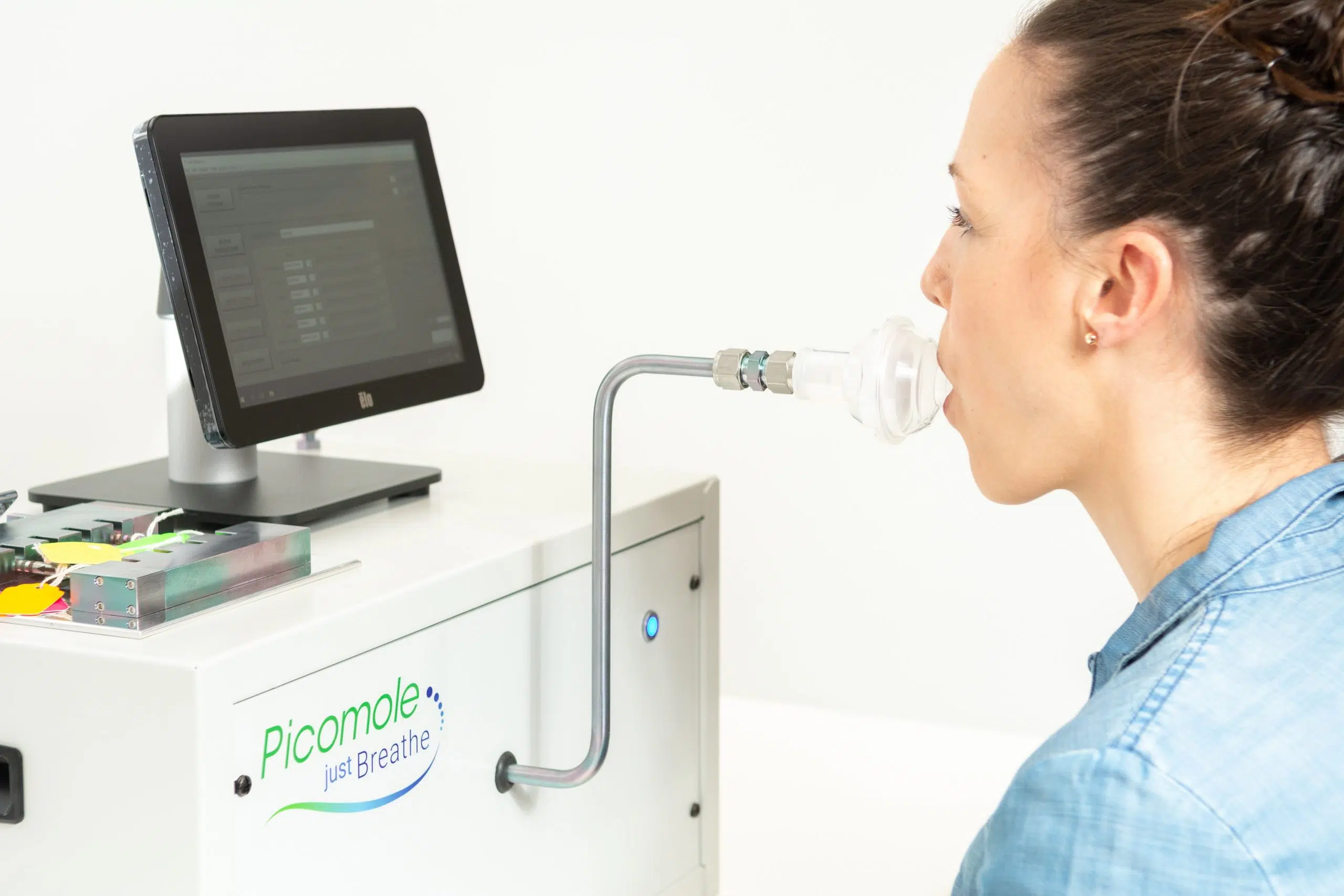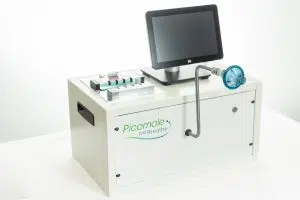
Provided by Picomole
A Moncton biotechnology firm has developed an innovative tool for lung cancer screening which could become as routine as mammograms for breast cancer.
The patented technology from Picomole has three parts.
The first component is a device about the size of a microwave that collects breath samples by simply having people blow into a mouthpiece.
The second is a spectrometer that processes and measures the amount of light absorbed by organic compounds found in the breath samples to provide unique digital breath prints.
The third component is the algorithm that looks for patterns or features in the breath print that suggests the presence of lung cancer.

Provided by Picomole
Picomole has recruited a biomedical engineering masters student from the University of New Brunswick to help work on the project.
Robyn Larracy says the screening tools for lung cancer currently available are expensive to operate and maintain.
“Something that uses breath samples instead would be a lot more affordable, a lot more accessible and it would be a game-changer,” she noted.
So far, Larracy’s work has proven to identify lung cancer screening patterns with an 85 percent accuracy rate.
The project has received support from Mitacs, a not-for-profit research organization.
“Each year, more Canadians die of lung cancer than of colon, breast, and prostate cancers combined, in part because there’s a large, unmet need for non-invasive lung cancer screening at the early stages,” said Picomole CEO Stephen Graham.
“With Mitacs’ support, we’ve obtained the valuable machine learning expertise we need to advance our technology to the next level, and we’re now poised to make a huge difference,” he added.
Picomole is currently working with global biotech firms to further advance its technology and is on target to have its breath sampler on the market this July.
Pending regulatory approval, the full breath-based screening system is expected to ultimately be available to doctor’s offices, specialized clinics and pharmacies.






